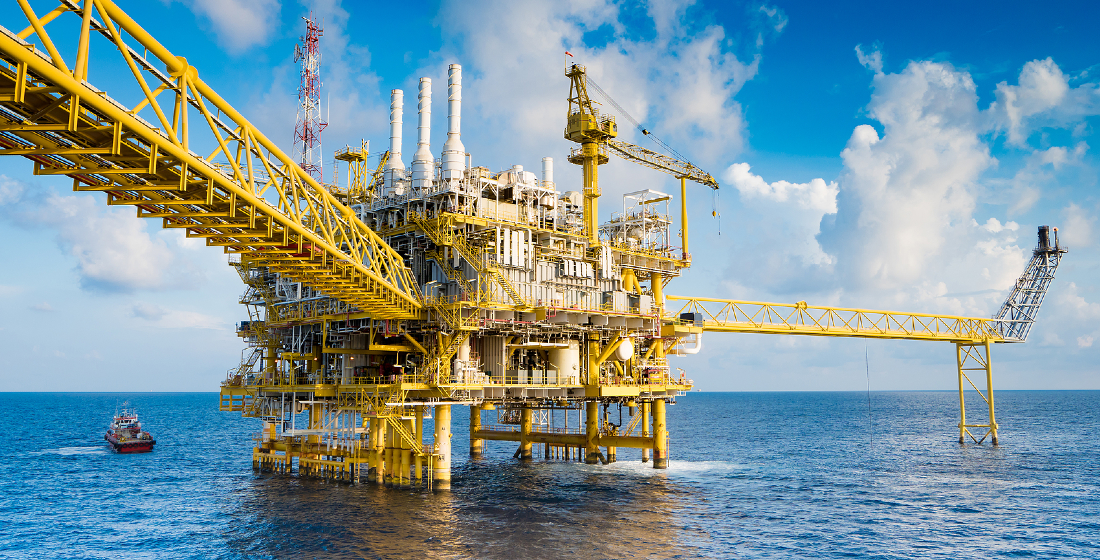Metals and mining at the crucial sustainability crossroads
In the push to decarbonisation and achieving greater sustainability, the metals and mining sector is very much in the spotlight. Many of the challenges are uphill and daunting, but progress is taking place and this needs to continue despite the lack of definitive industry standards.

When it comes to metals and mining the overwhelming consensus is that these are dirty and dangerous industries and sectors. I’m certainly not going to dispute that in any way here. But as we go forward with the energy transition, the push for ESG and decarbonisation within these industries has to be given much more impetus and attention if we are to get anywhere near to being considered sustainable.
Sure, there are conflicting interests across the board – there are considerable technical changes for some key products – perhaps most noticeable with iron and steel production, and at the same time many producers and manufacturers within the metals and mining sector know that there is a significant cost related to making the structural changes that will be required. Eventually, it is likely that iron/steel production will move away from coke-fired to burning hydrogen (green), and other metals also shifting to renewables-produced energy. This in turn will change the geography of metals production. But, change needs to take place now regardless.
Ultimately, the cost of making these changes will be transferred through the various parts of the supply chain – raw material producer, semi-finished/fully finished product, trader, transportation, wholesaler, retailer – with the end product in whatever form to the ultimate consumer.
Underinvestment in mining over the past 10 years means that there are, in the short- to medium-term, shortages of minerals. Industrial expansion in new industries and supply chain disruptions means that there is a tightness in supply across the board.
The construction sector has already seen steep rises in the price of structural steel and aluminium. Similarly, the automotive, electronics and renewables sectors are experiencing sharp rises is specialist metals. But the price hikes currently relate almost totally to the tightness in supply rather than industries experiencing the increased cost because producers and traders have taken on board sustainability measures.
The recent TXF Global Commodity Finance Conference in Amsterdam showed just how important the drive for sustainability has become, and across the board – whether within the agri sector, energy, or metals and mining the focus is increasingly going to be on environmental, social and governance (ESG) themes. What also came out in Amsterdam was the ever increasing need to pursue the S and the G of ESG – in other words, social and governance elements. Some metals and mining companies as well as traders are already making significant strides in this direction, but everyone knows that much, much more needs to be done.
One of the biggest hurdles for producers and traders alike is the current lack of standards and nomenclature surrounding ESG, and everybody has their own interpretation. It is only natural that this taxonomy equation is sorted out over a period of time – adjustments can always be made later on. Nothing is perfect - the evolution must continue regardless.
Time for action!
In relation to this, Adam Hearne, co-founder at Carbon Chain, asks: “Is the lack of a single ESG standard a reason to delay on disclosure and action?” And he answers his question with a resounding: “No!” Hearne goes on to suggest that commodity traders need to take into consideration the following when it comes to ESG:
1. Early action brings benefits.
2. Access to trade finance is more and more linked to ESG criteria.
3. Customers are looking for lower-carbon suppliers ➡ so get ahead for the green premium.
4. The spaghetti soup of standards is no excuse for inertia. Simply choose one and start somewhere.
5. External verification and certification is key to manage reputational and financial risks.
6. Measuring internally and disclosing externally are two different stages of the ESG journey. Companies often worry they need to do both at once, so delay the decision to start measuring. First, focus on internal tracking and getting stakeholders and strategy aligned, then choose an approach from the globally accepted standards for disclosure.
7. Methodologies for carbon accounting are available, agreed and precise: the challenges are the complexity of finding information and experts, and disclosing in a standardised way.
8. Getting data is one of the biggest challenges: but you’ll be surprised how much you can find when you start asking, or using best-available data. Start speaking to your suppliers and the technical managers for your assets. Use third party tools like CarbonChain that are already out there.
9. First-movers are taking strides, but the whole industry has to move forward, joining things like the Sea Cargo Charter to benchmark and improve together.
10. We need standards that are inclusive and achievable across geographies.
11. Transparency doesn’t necessarily mean information leakage and a loss of competitive advantage. For example, the worries around health & safety reporting were soon overshadowed by the advantages of sharing top tips and good practice.
12. Companies should learn from financial accounting: get an early view on the liabilities related to your carbon emissions.
Aluminium in focus
Taking a closer look at one key metal – aluminium – which is the second most widely used metal globally after steel; it accounts for nearly 1% of global greenhouse gas (GHG) emissions, with 80% of that contributed by the aluminium smelting process. But some producers have made some great strides in the whole decarbonisation process. One of the world’s biggest producers of aluminium – Russia’s Rusal – now produces 90% of finished aluminium using hydro-electric powered renewable electricity at its smelters. The company says that by 2025 this figure will be up to 95%. Initially called ‘green aluminium’, the company has now branded this aluminium as ‘Allow’.
The company notes: “Allow distinguishes itself by its very low CO2 emissions emitted during its production. The Scope 1 and 2 emissions of this brand are no more than 4 tonnes of CO2 equivalent per tonne of aluminium, which is three times below the industry’s global average and 4-5 times lower than the carbon footprint produced at smelters fed by coal-fired power plants.”
It also notes, that: “The carbon efficiency of Rusal’s aluminium was confirmed by independent experts, while the brand itself was given statements by the TUV Austria and Quantis, a Swiss-based environmental research group. Rusal also allows every buyer of the Allow-branded metal to track the whole production cycle and logistics to confirm its environmental friendliness.”
On the trading company front, in early 2021 Trafigura which is one of the world’s leading aluminium traders, announced that it was taking decisive action to accelerate the uptake of low-carbon aluminium. Trafigura stated: “Demand for low-carbon aluminium is already rising, with manufacturers, particularly in the packaging and European automotive industries, seeking to reduce GHG emissions across their value chains. These companies are prepared to pay premium prices for low-carbon aluminium brands. They are at the cutting edge of a growing trend.” The trader had already established a low-carbon aluminium trading desk back in 2019 – being the first commodity trader to do so.
And on the financing front, as part and parcel of this process with aluminium, in September 2020 Trafigura established a ‘low carbon aluminium’ financing platform of up to $500 million in conjunction with Natixis and Rabobank. The platform enables Trafigura to access financing at a preferential interest rate and, in turn, to pay a premium to low carbon aluminium producers.
The company said at the time: “As the first financing of its kind for Trafigura and for the wider market, the facility has been designed to meet growing demand from downstream manufacturers for low carbon aluminium and to support upstream producers in accelerating their transition to low carbon technologies.”
Trafigura also pointed out that one of the key issues was that of definition or standards. It noted: “Numerous regulatory and voluntary initiatives have sought to improve the emissions and energy intensity of the aluminium production sector, but there is still no official market definition of ‘low carbon aluminium’. Through this new financing, [we have] developed a methodology that sets out clear parameters for low carbon aluminium production, drawing on existing recommendations and standards such as those formulated by the EU Technical Expert Group on Sustainable Finance and the Aluminium Stewardship Initiative (ASI).”
At the time, Orith Azoulay, global head of green & sustainable finance, corporate & investment banking at Natixis commented: “The environmental transition of many industries will rely, in large part, on the creation of a low carbon aluminium value chain from extraction to final use. This financing marks the first milestone on this journey, notably by engaging key stakeholders on this value chain and by establishing the necessary technical and price signals. As demonstrated through our innovative green weighting factor mechanism, Natixis has put the transition to a lower carbon economy at the heart of its business strategy and client strategic dialogue.”
First Movers Coalition
Trafigura is also one of the founding members of the First Movers Coalition (FMC), a global initiative originally set up at COP26 in Glasgow in November 2021, to harness the purchasing power of companies to decarbonise “hard to abate” industrial sectors that currently account for 30% of global emissions: aviation, chemicals, concrete, shipping, steel and trucking (+ now including aluminium and innovative carbon removal technologies – see below).
One of the first uptakes for Trafigura within the FMC was its commitment within shipping. Trafigura has committed to own and operate six ammonia-carrier vessels which will be converted to use low-carbon ammonia as their primary fuel source by 2030, if technically feasible. This represents approximately 18% of the company’s current owned fleet. The vessels will be built with the technical capability to switch fuels from conventional fuel oil to low-carbon (blue or green) ammonia when the MAN Energy Solutions two-stroke ammonia engine that Trafigura is co-sponsoring becomes commercially available.
At the time, Jeremy Weir, executive chairman and CEO of Trafigura commented on the real need for a global regulatory framework to help speed decarbonisation in the shipping sector: “The First Movers Coalition is an important initiative that will drive investment in technologies and solutions to achieve net zero. In the shipping sector, this marks another important signal by industry of its willingness and readiness to decarbonise. We now need an enabling global regulatory framework to accelerate progress and put a price on carbon for marine fuels.”
The FMC has now expanded to more than 50 corporate members worth about $8.5 trillion, and a total of nine leading governments, including the US, covering over 40% of global GDP.
In a further expansion of the FMC announced last week at the World Economic Forum, aluminium and carbon removal were two new industrial sectors that were added to the FMC list. As such, Trafigura joins Ball Corporation, Ford Motor Company, Novelis and Volvo Group as founding members of the coalition’s new aluminium sector. The companies have committed that 10% of total primary aluminium purchased by 2030 will comprise near-zero carbon aluminium, produced using advanced technologies not yet commercially available.
Weir also noted last week: “In making this new commitment we are sending a firm market demand signal for emerging technologies essential for a net-zero transition. We believe that near-zero and low-carbon aluminium will be a premium product in the market once the technologies required start to be commercially deployed and we’re delighted to help to accelerate this process.”
Further industry developments
Industry developments on commitments to ESG goals, sustainability and decarbonisation are coming through in different forms, and it is only right that some of these are led by the big miners, traders and industry bodies and associations.
Cobalt - Everybody knows how crucial the secure supply of cobalt is to the electric vehicle and renewable energy sectors. And with much of the world’s cobalt mined in the Democratic Republic of Congo (DRC) there has always been a good degree of concern over the methods of mining and the need for responsible/sustainable mining, along with proof of origin of product.
Back in 2018, Trafigura, which is one of the main traders of cobalt, produced a whitepaper entitled Meeting the EV challenge: Responsible sourcing of cobalt in the electric vehicle battery supply chain. In mid-May this year, the trader produced an updated whitepaper entitled: Accelerating transition: the case for formalising artisanal and small-scale mined cobalt in the DRC. The paper is a key document for the cobalt industry, and it presents Trafigura’s proposals for managing the cobalt supply chain challenge posed by the continued rapid increase in demand for the raw materials for lithium-ion batteries used for electric vehicles and portable electronics.
LME - Elsewhere, last week the London Metal Exchange (LME) announced that 17 more metals producers are now disclosing sustainability data on its digital register known as the ‘LMEpassport’. The exchange stated: "The taxonomy covers environmental, social and governance (ESG) spheres, and is designed to ensure that all aspects of sustainability – and the ways in which LME-listed brands are addressing them – can be reflected."
This followed the introduction of a range of new certifications on the register allowing International Council on Mining & Metals (ICMM) members to be recognised for their efforts to improve performance and transparency across the range of ESG topics. Overall, this now takes the total of metals producers listed to 26.
LME chief sustainability officer, Georgina Hallett, commented: “We’re delighted that producers are increasingly finding value in providing greater visibility of their sustainability credentials via LMEpassport. As we expand the range of available metrics producers can use to disclose their data, the overall ESG landscape across the metals industry becomes clearer and this transparency drives progress and mitigation. The more producers are open about their methodologies, their strengths and the work still to be done, the better we can address industry level sustainability challenges.
Become a subscriber today to access the best export, trade and commodity finance analysis available. Email intelligence@txfmedia.com to find out more
Exclusive subscriber-only content published last week;
CMOC Brazil secures $600m niobium PXF for security of strategic metal supply
A landmark deal for CMOC Brazil provides what is the largest structured commodity finance deal for niobium the market has seen, and demonstrates the importance of structured financing for security of supply....Read on here
Trade Finance TV: Securing critical commodities in a volatile world
TXF’s commodities content manager, Aife Howse, joined Deutsche Bank’s Trade Finance TV to discuss the need for more investment in the metals and mining sectors - an integral part of both the green industrial and digital revolutions....Read on here
How is climate finance incorporating ‘just transition’?
Although there is no widely accepted definition of just transition, the agenda is gaining popularity among DFIs, MDBs and impact investors, particularly in the emerging markets....Read on here
Covantis makes strides in Brazilian agri-trade
Covantis, the Swiss-headquartered agri-industry initiative powered by blockchain technology to digitise the post trade of agricultural commodities has announced that so far in 2022 it has captured a 70% market share of soybeans, corn (maize) and soybean meal originating in Brazil....Read on here
More details on DC Smart Street Lighting bond issuance
The $159.7 million bond financing of the District of Columbia’s first P3, DC Smart Streetlighting, closed on 5 May 2022....Read on here
Marsh appoints global political risk & structured credit leader
Insurance broker Marsh has appointed Rob Perry as global political risk & structured credit leader, Marsh Specialty, effective 1 July....Read on here
Syndication closes on GlasfaserPlus financing
Syndication has closed on the €2.15 billion project financing for the GlasfaserPlus FTTH project....Read on here
Obelix FTTH financing progresses
The financing of the €2 billion Obelix FTTH project is progressing and is due to reach financial close by the end of June, according to a source with knowledge of the deal....Read on here
Engie taps IDB Invest for Peruvian wind farm funding
Project sponsor of the 260MW Punta Lomitas wind farm in Peru - Engie Energia Peru – has requested an up to $300 million corporate facility from IDB Invest to back the scheme....Read on here
Alerion signs project debt for 62MWs of greenfield wind
Alerion Clean Power, through its subsidiaries Enermac and Naonis Wind, has signed a project debt facility for two fully incentivised greenfield wind farms in Puglia, Italy, totalling 62MW....Read on here
New ITFA paper seeks feedback on trade as an investible asset class
The International Trade & Forfaiting Association (ITFA) has published a new whitepaper on making trade an investible asset class and is seeking feedback from industry participants to build on this work further to collectively develop the trade finance ecosystem....Read on here





